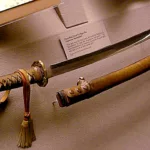Planning for one’s death is not exactly a pleasant endeavor, but it is one that responsible individuals generally undertake. The alternative is that, when they die, they essentially lose control of how the assets they’ve accumulated throughout their lifetimes will be distributed to their loved ones or anyone else that they otherwise might have seemed fitting. One of the most common methods by which wealth, property and other assets are passed down from one person to another is with the use of a trust. A trust is a legal device by which a person can guarantee with solid accuracy that their estate and whatever they have accumulated will go where they want it to go when they die.
Many people are under the assumption that a trust is something that will only be used by the very rich. By contrast, a trust is actually a responsible vehicle for anybody who wants to ensure that their beneficiaries are properly taken care of in a manner that is not harmful to them. Other people might be scared off by what they perceive as the complicated nature of a trust, perhaps preferring a simple will instead. But wills can’t be wielded with quite the same precision, and trusts need not be as overly complex as one might think.
The best way to go about enacting a trust is to find out more about it from those who are professional experts in the subject. What you might find when you talk to them is how much benefit there is, for you and your loved ones, in setting up a trust to handle your estate when you die.
Tax Breaks
This is a major positive attached to trust enactment. You might think, for instance, that simply passing your estate on to your spouse along with all your assets is the way to go. While that initial transference is tax-protected, your spouse’s beneficiaries will feel the brunt down the road of having to pay taxes on the estate. A trust can be utilized in many different ways to soften the tax blows.
Stopping Creditors
Throughout one’s life, it’s hard to conduct all of your financial dealings without running up some debt along the way. That debt can be collected if left unprotected, whether while you’re still alive or after you die. Putting your assets in a trust will protect them because the trust acts as a separate entity from the person who endows it in the first place.
Keeping Control
Perhaps the ultimate benefit of endowing a trust is that it allows you to stay in charge of those assets while you’re still around, especially if you set up what is known as a revocable trust, which means that the terms can be changed. By contrast, setting up an irrevocable trust to be undertaken once you pass away will ensure your post-death plans for your assets are legally set in stone.
Learn more about trusts and you’re bound to find even more benefits attached to them. They can remove the burden of financial uncertainty from you and the ones you love.








